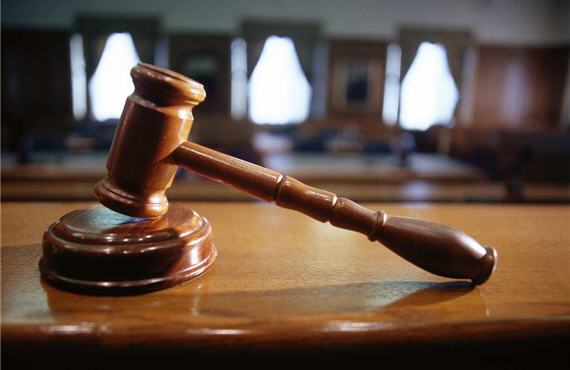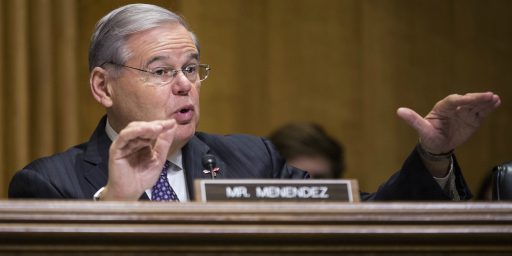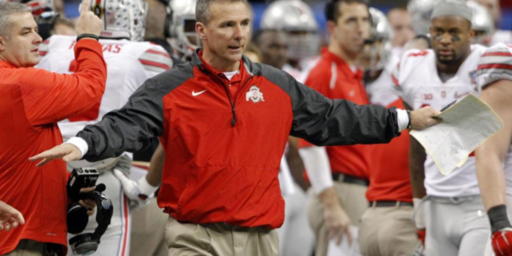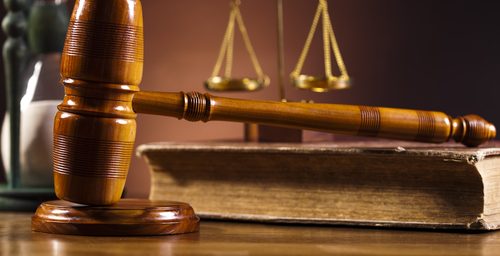Supreme Court Overturns Murder Conviction Due To Improperly Withheld Evidence
Another death row inmate. Another case of prosecutorial misconduct from the office of Harry Connick, Sr.
For the second time in a year, the United States Supreme Court has ruled in a case involving serious prosecutorial misconduct in the New Orleans District Attorney’s Office during the tenure of Harry Connick, Sr, who served as Orleans Parish D.A. from 1973 to 2003, taking over that position from Jim Garrison, who had made himself famous by pursuing bizarre conspiracy theories related to the assassination of President Kennedy.
In last year’s case, the Court set aside a $14 million civil verdict that had been awarded to a man who had served nearly two decades on death row after being convicted of murder due in large part to the fact that two of Connick’s subordinates had knowingly withheld evidence that would have exonerated him. As I noted at the time, this was a serious miscarriage of justice:
Thompson was denied a fair trial because the prosecutor consciously refused to turn over evidence that could have, and ultimately die, clear him of the crimes he was accused of. Because of that egregious action, he spent fourteen years of his life on Death Row. The idea that he is unable to receive damages for this action from the very office that wrongfully convicted him is really quite shocking. Prosecutors have an ethical duty that goes beyond those of normal attorneys; they are required to see that justices is administered fairly. Sometimes, that means that they’ll lose a case but, as that saying goes, it is better that a hundred guilty men go free than one innocent man go to prison.
Yesterday, the Court dealt with yet another case arising out of a conviction during the time that Connick held office, and this time it reversed the conviction of a man who had been convicted of murder in another case where crucial evidence was withheld from the defense:
The Supreme Court on Tuesday reversed the conviction of a New Orleans man, saying prosecutors there had withheld important evidence that his lawyers could have used in his defense.
The decision, by an 8-to-1 vote, was the latest in a series of Supreme Court decisions suggesting a pattern of prosecutorial misconduct in the Orleans Parish District Attorney’s Office. Justice Clarence Thomas dissented.
Tuesday’s case concerned Juan Smith, who was convicted of killing five people in 1995, when a group of men burst into a house in search of money and drugs. They ordered the occupants to lie down and opened fire.
Mr. Smith was the only person tried for the killings. He was convicted based solely on the eyewitness testimony of a survivor, Larry Boatner. Prosecutors presented no DNA, fingerprints, weapons or other physical evidence.
But Mr. Boatner’s testimony proved sufficient.
“He’s right there,” Mr. Boatner said at Mr. Smith’s trial, pointing at the defendant. “I’ll never forget him.”
It later emerged that prosecutors had failed to disclose reports of interviews with Mr. Boatner. In one, hours after the killings, Mr. Boatner said he could not describe the intruders except to say they were black men. Five days later, he said he had not seen the intruders’ faces and could not identify them.
Eyewitness evidence, according to recent studies and court decisions, is both unusually persuasive and unusually unreliable. Kannon K. Shanmugam, a lawyer with William & Connolly who represented Mr. Smith in the Supreme Court, told the justices in a brief that the withheld statements from Mr. Boatner “constitute the epitome of impeachment evidence.”
There was no question, Chief Justice John G. Roberts Jr. wrote for the majority, that the reports should have been turned over under Brady v. Maryland, a 1963 Supreme Court decision that requires prosecutors to provide favorable evidence to the defense. The question for the justices was only whether the failure mattered — that is, in the words of a 2009 decision, whether “there is a reasonable probability that, had the evidence been disclosed, the result of the proceeding would have been different.”
In a brisk four-page opinion in the case, Smith v. Cain, No. 10-8145, Chief Justice Roberts wrote that “Boatner’s undisclosed statements were plainly material.”
The Court’s opinion is relatively brief, and to the point:
We have observed that evidence impeaching an eyewitness may not be material if the State’s other evidence isstrong enough to sustain confidence in the verdict. See United States v. Agurs, 427 U. S. 97, 112-113, and n. 21 (1976). That is not the case here. Boatner’s testimony was the only evidence linking Smith to the crime. And Boatner’s undisclosed statements directly contradict histestimony: Boatner told the jury that he had “[n]o doubt” that Smith was the gunman he stood “face to face” with on the night of the crime, but Ronquillo’s notes show Boatner saying that he “could not ID anyone because [he] couldn’t see faces” and “would not know them if [he] saw them.” App. 196, 200, 308. Boatner’s undisclosed statements were plainly material.
The State and the dissent advance various reasons whythe jury might have discounted Boatner’s undisclosed statements. They stress, for example, that Boatner madeother remarks on the night of the murder indicating thathe could identify the first gunman to enter the house, but not the others. That merely leaves us to speculate about which of Boatner’s contradictory declarations the jurywould have believed. The State also contends that Boatner’s statements made five days after the crime can be explained by fear of retaliation. Smith responds that the record contains no evidence of any such fear. Again, the State’s argument offers a reason that the jury could have disbelieved Boatner’s undisclosed statements, but gives usno confidence that it would have done so.
As Steve Benen notes, however, Justice Thomas, the lone dissenter, would establish a far different standard:
Smith is correct that these undisclosed statements could have been used to impeach Boatner and Ronquillo duringcross-examination. But the statements are not material for purposes of Brady because they cannot “reasonably be taken to put the whole case in such a different light as toundermine confidence in the verdict.” Kyles, 514 U. S., at 435. When weighed against the substantial evidence that Boatner had opportunities to view the first perpetrator, offered consistent descriptions of him on multiple occasions, and even identified him as Smith, the undisclosed statements do not warrant a new trial.
(…)
The question presented here is not whether a prudent prosecutor should have disclosed the information that Smith identifies. Rather, the question is whether the cu- mulative effect of the disclosed and undisclosed evidence in Smith’s case “put[s] the whole case in such a differentlight as to undermine confidence in the verdict.” Kyles,514 U. S., at 435. When, as in this case, the Court departs from its usual practice of declining to review alleged misapplications of settled law to particular facts, id., at 456 (SCALIA, J., joined by Rehnquist, C. J., and KENNEDY and THOMAS, JJ., dissenting), the Court should at least consider all of the facts. And, the Court certainly should not decline to review all of the facts on the assumption thatthe remainder of the record would only further support Smith’s claims, as the Court appears to have done here. Ante, at 3-4. Such an assumption is incorrect. Here, much of the record evidence confirms that, from the night of the murders through trial, Boatner consistently described—with one understandable exception—the first perpetrator through the door, that Boatner’s description matchedSmith, and that Boatner made strong out-of-court and incourt identifications implicating Smith. Some of the undisclosed evidence cited by Smith is not favorable to him at all, either because it is of no impeachment or exculpa- tory value or because it actually inculpates him. Because what remains is evidence of such minimal impeachment and exculpatory value as to be immaterial in light of the whole record, I must dissent from the Court’s holding thatthe State violated Brady.
Thomas also happens to be the Justice who wrote the majority opinion in the civil verdict case mentioned above, and its clear that he would give far wider latitude to prosecutors in withholding potentially exculpatory information than his eight brethren.
This is a mistake. The burden that Thomas would place on a defendant in this type of case would make prosecutors virtually immune from any consequences for violating the Court’s landmark opinion in Brady v. Maryland where Justice Douglas said:
Society wins not only when the guilty are convicted but when criminal trials are fair; our system of the administration of justice suffers when any accused is treated unfairly. An inscription on the walls of the Department of Justice states the proposition candidly for the federal domain: “The United States wins its point whenever justice is done its citizens in the courts.” 2 A prosecution that withholds evidence on demand of an accused which, if made available, would tend to exculpate him or reduce the penalty helps shape a trial that bears heavily on the defendant. That casts the prosecutor in the role of an architect of a proceeding that does not comport with standards of justice, even though, as in the present case, his action is not “the result of guile,” to use the words of the Court of Appeals.
As we already have seen from last year’s case this is not an isolated incident, during the time that Connick was District Attorney there are at least 19 incidents that we know of where men were convicted of capital crimes under circumstances involving wrongful conduct by the Orleans Parish D.A.’s office:
According to the Innocence Project, a national organization that represents incarcerated criminals claiming innocence, 36 men convicted in Orleans Parish during Connick’s 30-year tenure as DA have made allegations of prosecutorial misconduct, and 19 have had their sentences overturned or reduced as a result. (Connick retired in 2003.) The prosecutor who led the armed robbery trial and assisted in the murder trial, Jim Williams was one of the prosecutors whose work has come under scrutiny. In 1995, Esquire photographed him, for a piece on the death penalty, standing confidently in front of his desk with one of his favorite office decorations: a 12-inch-high, battery-powered (and operational) electric chair, complete with the mug shots of the five men he had personally prosecuted successfully in capital punishment cases. All five have subsequently been released or had their death sentences commuted to life due to procedural problems in their trials.
And those are the incidents we know of, in one District Attorney’s office. It makes one wonder what goes on elsewhere.
Here’s the opinion in Smith v. Cain:







No physical evidence whatsoever and only one witness, who didn’t see the faces of the perpetrators, and Thomas thinks the jury would not find those details significant?
Thomas should never have been put on the bench. The man has a hugely distorted understanding of the word “justice.” What a disgusting individual.
Also, there should be criminal penalties for prosecutors who withhold material evidence that could exonerate the accused. Sorry, but there is no other way to keep these assholes from putting innocent people in jail to pad their resumes.
If you think Connick runs a rougue D.A.’s office you should see the NOLA P.D. They make the Serpico-era N.Y.P.D. look tame by comparison. How many times have the Feds had to step in and monitor that department? It’s surreal. There’s something about those machine-Democrat environs. People in positions of authority seem compelled to get in touch with their inner mafiosas.
In any event, I understand the agenda here is anti-death penalty, but the reality is that bad cops and bad prosecutors are not a reason to call into question the entire system. The system works. It’s worked forever. It’ll continue working in the future. With direct appeals and habeas writs and the clemency and pardon processes there are more than enough layers of protections in place.
It seems pretty clear to me that prosecutors need to be reined in. There is a strong incentive for them to push push push for convictions, and the least ethical of them do do do.
@Tsar Nicholas: “The system works. It’s worked forever.”
The only reason any system works is because the Clarence Thomases of the world are kept out of positions of authority. When that ceases to be the case, every system will fail.
Mike
@Tsar Nicholas:
Tell that to the family of Cameron Todd Willingham.
@Tsar Nicholas: “The system works. It’s worked forever.”
Mr. Smith spent sixteen years on death row waiting for the system to work.
Just sayin’
@mantis:
There are. The problem is the laws don’t mean anything when they depend on other prosecuters to indict and try their friends and coworkers.
The Tsar’s got a good point here. I lived in New Orleans. People thought Connick was corrupt, but in a one-party town, without a lot of good alternatives to replace him, he was our crook, fighting against a city that frequently had the highest per capita murder rate in the country.
The police also tended to stink. One explanation I was given was that the crowd control practice that cops got from Mardi Gras made them very attractive in other major metros that would pay the good cops a lot more to relocate. The good cops would leave, the others would stay.
So, in answer to Doug’s last query, no, it doesn’t make me wonder what goes on elsewhere. New Orleans is New Orleans.
@PD Shaw:
Then PD you are being incredibly naive about the criminal justice system in my opinion.
No, I’m just saying that New Orleans, under Harry Connick, is exactly where I would expect the most wrongful convictions.
@Tsar Nicholas: “The system works. It’s worked forever.”
Didn’t people say that about the Russian Aristocracy before 1917?
I hate to pile on, but how could you have written this with a straight face? You must have chortled.
@Tsar Nicholas:
OK, Tsar is now officially an idiot…. The system does not “work”. It has never “worked”. It will never “work”. Unless…. Putting innocent people to death is OK.
@Tsar Nicholas:
“If you have the right lawyer, we have the greatest criminal justice system ever created.”
We have the best justice system money can buy.
He’s not on deathrow because of this killing spree (for which he got a life sentence), he’s on death row for a different killing spree, in which the prior conviction (now set aside) was an aggravator:
It works well for people with a high net worths and middle class whites. Not so much for everybody else.
Now middle class whites are slowly but surely being pushed to the margins. It’s not too hard to see where that will leave us. This is an inevitable result of government of the rich, by the rich and for the rich.
Well certainly some, like the person behind the Tsar Nicholas pseudonym, as well as Clarence Thomas, seem to agree with that…
I do think the real issue here is prosecutorial immunity. Last year, the court, in Connick v. Thompson, the prosecutor’s immunity (the same prosecutor) was affirmed in a 5-4 decision written by Thomas.
While prosecutors don’t enjoy absolute immunity (viz. Nilfong and the Duke Lacrosse case), but the shield is too broad and protects where it should not.
Perhaps the USSC is finally catching on to the rampant and continual misconduct of the NoLa prosecutor’s office. Retrial, here, is about the only relief it could have offered.
@John Burgess:
Actually, they do have absolutely immunity for anything they do while performing a prosecutorial function. Nifong is absolutely immune from suit. However, he is not immune from being disbarred, which is what happened.